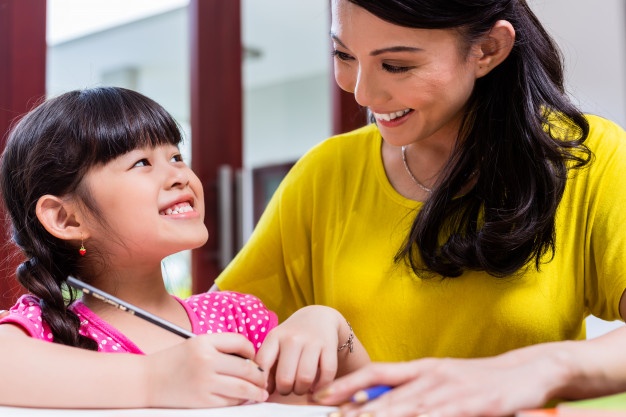
5 Misconceptions About Homeschooling
March 27, 2020“How does homeschooling work? Will it do more harm or good to my kid?”, every parent asks these questions. Besides, there are some misconceptions about homeschooling. Whether you’ve always wanted to homeschool or you’ve been thrown into it during a time of crisis, it’s important to know the truth about these homeschooling misconceptions!
5 Misconceptions About Homeschoolers
There are lots of pros and cons of homeschooling, we know that. And parents, when they are choosing between the traditional form of education and studying at home, must be aware of them. Besides, every family with a homeschooler faces some misunderstanding, misconceptions, and possibly even criticism. When you switch to such a form of education, you’ll be asked thousands of homeschooling questions, some of them are nonsense, but you must be ready for them. Homeschooling your kids, soon you’ll be sick of confronting and trying to fight with all those misunderstandings. That’s why we have decided to explore the 5 biggest myths about studying at home while using our experience and scientific proof to dispel them! Keep reading, we hope you’ll find the answers you seek in this post!
Parents Are Not Qualified Enough To Teach Children
 It doesn’t actually matter how qualified parents are, and here we have scientific evidence! Dr. Lawrence M. Rudner, an education expert did nationwide research, examining test scores of homeschoolers. Dr. Rudner made a conclusion that it doesn’t matter whether homeschooler’s parents have a Ph.D., a GED, or not. Students show great achievements regardless of the fact that their parents are not certified teachers (Demographics And Achievement Of Home School Students, 1998).
It doesn’t actually matter how qualified parents are, and here we have scientific evidence! Dr. Lawrence M. Rudner, an education expert did nationwide research, examining test scores of homeschoolers. Dr. Rudner made a conclusion that it doesn’t matter whether homeschooler’s parents have a Ph.D., a GED, or not. Students show great achievements regardless of the fact that their parents are not certified teachers (Demographics And Achievement Of Home School Students, 1998).
To sum up, no matter which types of homeschooling you would prefer, whether you are a teacher or not, your homeschool kid can even outperform his/her schooled peers in any subject. More than that, homeschoolers often perform 4 years above the national average by the time they reach 8th grade.
Schooled Children Are Much Better Socialized Than Homeschoolers
One of the main reasons which stop parents from teaching their kids at home is, as they think, “a lack of socialization”. Surprisingly, they are not afraid of cliques, peer pressure, or even bullying. In addition, some parents think that children need the experience of being bullied at school since it makes them “stronger, tougher, and ready for the real world”! However, living in normal society, do adults often face bullying? At times. On a positive note, homeschoolers don’t have to face this aspect of socialization. Instead, they communicate with their peers, younger kids, the elderly, relatives, etc. As Debra Bell says in her book The Guide To Homeschooling, 2001, home-educated kids show low problem-behavior scores. Thanks to the numerous benefits of homeschooling, such children aren’t shy to speak up; they are more confident and tolerant, see their goals clearly, and do their best to reach them.
Homeschoolers Stay At Home All Day Long
Actually, it really depends on the parents’ and kid’s personalities. If you and your child are stay-at-home individuals, then homeschooling will become another opportunity for you to sit flat. But if you have always been leading an active lifestyle, homeschooling won’t prevent you from continuing the same way. Contrary, it’ll give you the chance to attend concerts, museums, performances, parks, beaches, ski slopes, etc. during midweek because at this time prices are lower, plus, there are no crowds. Besides, your kid can participate in sports events and competitions. Homeschooling programs allow combining education and active social life. Of course, in order to work effectively, you and your child will have to acquire time-management principles. And soon there will be enough time for having fun with all sorts of adventures like toy kitchens and play food or other activities!
Homeschoolers Have Trouble With Entering A College
Top colleges, such as Dartmouth, Yale, UC Berkeley, and others actually seek homeschoolers, and, as the practice has shown, they enter at a higher rate. It happens because home-educated students have unique skills and qualities which help them to do better at college or university. They are self-disciplined, motivated, responsible for the process of studying, and know how to manage time. Overall, thanks to their skills, most homeschool students are more prepared for college life than their peers.
Homeschoolers Don’t Get High-school Experience
Homeschooled teens don’t actually think that they miss their high-school experience. More than that, they claim that schooled peers miss great teen years. Homeschoolers manage their everyday studying by themselves: different homeschooling ideas and approaches let them learn and explore favorite subjects deeper and longer, simply because they like it. As we mentioned above, home students can attend various cultural events and in more convenient conditions. Top it off, they can travel off-season, go to bed later, have sleepovers with friends on any day, etc.
John Taylor Gatto, who was a Teacher of the Year turned homeschool parent, says that if a student is motivated and focused enough, he/she can finish a 4-year curriculum in about 2 years. Impressive, isn’t it? Besides, Gatto mentions that schooled children spend much time going to and back from school; teachers also spend precious time giving directions, disciplining children, making announcements, changing classes, distributing and collecting papers, etc. All these things are time-wasters, and homeschoolers don’t spend a single minute on them.
Overall, home-educated teens get more than high-school experience, they get good life experience and useful skills.
Don’t get us wrong, we don’t say that homeschooling is an easy job, and you’ll only have fun and enjoy your life. No! Homeschooling is hard work for you as a parent and for your kid. Before it becomes rather pleasant and comfortable, you’ll have to pass a process of deschooling and learn lots of new skills and qualities such as firm self-discipline, diligence, effective time-management. You as a parent will have to be strict and motivating. So, before you ask yourself “How to start homeschooling?”, you must learn and evaluate lots of information.
We hope, our post has helped you to get rid of these common homeschooling misconceptions. Our team believes that regardless of all hardship you may face at the beginning, homeschooling is the most effective way of studying and worth your efforts!
About the Author: Betti Wilson, a Bachelor of Science in Education and a Master in French, has worked as a teacher at a high school in New York for 7 years. After adopting three kids aged 6, 9 and 14, Betti switched to homeschooling. Now she is a successful homeschool mother and evaluator.
Latest Posts

Guest Post by Gabriel Morse For several years, I sat for long hours every day behind one of those battleship gray desks in a windowless, dull, gray office. The pay was enough to take care…
Read more >
This post is sponsored by Little Monsters Universe. I'm Tina Salmanowitz, an advocate for homeschooling and science education. With over a decade of experience as a science educator (in class…
Read more >
This post is sponsored by Time4Learning. Before the pandemic, it was business as usual for Boca Raton resident Nikki Warris. Her two daughters, 5-year-old Natalie and 8-year-old Lexi were…
Read more >


